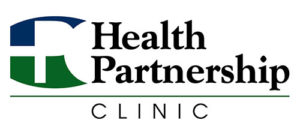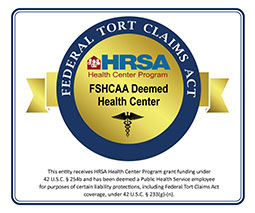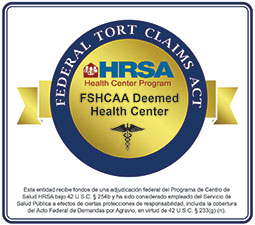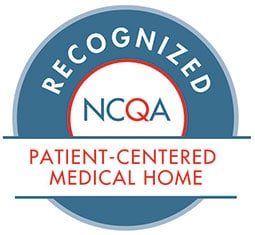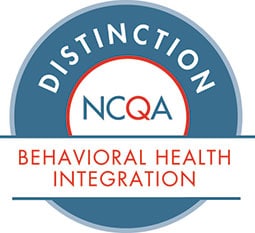Patient Safety Key at Health Partnership
 By Sharon Trongaard, RRT, MS, MPH, Clinic Director/Risk and Compliance Officer at Health Partnership Clinic
By Sharon Trongaard, RRT, MS, MPH, Clinic Director/Risk and Compliance Officer at Health Partnership Clinic
Safety is defined as “freedom from accidental injury” (ACP). In healthcare, we can experience many different types of errors that can negatively impact a patient’s health. Contrary to popular belief, most medical errors do not occur in hospitals, they happen in physician offices and clinics (AHRQ). This is because there are many more visits made to physician offices and clinics than there are hospitalizations. Mistakes in medications, diagnostic tests, communication and referrals can cause delays in care, frustration and patient harm. Medical errors also take a toll on the health care providers who suffer from remorse and depression when a mistake is made.
The good news is that there are many things we can do to increase patient safety and reduce errors.
Here are a few ways Health Partnership Clinic (HPC) keeps you safe:
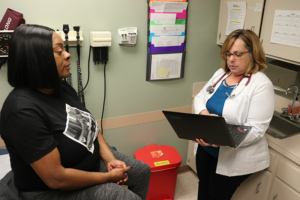 Patient Identification. We will ask for your name and Date of Birth (DOB) many times during your appointment. We also will ask to take your picture for your medical record and verify your address as additional safety steps. When we call you with test results or information, we will ask you to verify your Date of Birth.
Patient Identification. We will ask for your name and Date of Birth (DOB) many times during your appointment. We also will ask to take your picture for your medical record and verify your address as additional safety steps. When we call you with test results or information, we will ask you to verify your Date of Birth.- Cleaning our hands. We clean our hands using alcohol-based sanitizer or washing with soap and water, before and after providing care. We should do this even if we wear gloves.
- Reviewing medication lists. Your Health Care Team needs to know all the medications and supplements you take so that they can provide the safest care.
- Ask you to fully participate in your care. Your Health Care Team cares about your health status, concerns and goals. They need your involvement to develop a care plan specific to you.
- Use terms you understand and not medical jargon. This helps to ensure you understand instructions.
- Coordinate care like referrals to specialists, medical imaging, counseling and lab tests. These give your Health Care Team important information about your health and specific problems that may need treatment.
- Follow CDC guidelines for infection control and cleaning our facilities. We check these guidelines very frequently to keep everyone safe.
- Ask you to answer surveys so we can improve your experience. These may be on paper, via email or text.
Here are ways you can keep yourself safe:
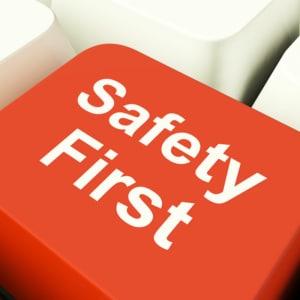 If we forget to ask for identification (name and DOB), ask that we do.
If we forget to ask for identification (name and DOB), ask that we do.- If you do not see us clean our hands, ask that we do.
- Participate in your care. You should be an active partner with the health care team. If you have questions about a medication, or what your next steps are, speak up so we can ensure you understand and agree that the care plan will work for you.
- Use the ePortal so that you have easy access to your medication lists, lab work and other health information. You can also send messages to your health care team through the ePortal. To access HPC’s portal, click here https://hpcks.org/patient-portal/.
- Have your medications on a list and keep it up to date. You can also bring your medication bottles to your appointment if that is easier. You will want to include supplements and vitamins as some of these can interact with medications.
- Double check your medications when you pick them up from the pharmacy. Does the medication label have your name and address? Is the medication, dose and instructions what you were expecting? Call the office or pharmacy if you notice something is not right.
- Follow up and complete any lab tests or referrals that your health care team orders for you. If you cannot follow through for some reason (such as cost, transportation, etc.) let your health care team know. There may be options we can offer.
- Follow guidelines for masking and social distancing as posted in the clinics.
- Provide us feedback on surveys. Let us know when we have done a great job and when we missed the mark.
By partnering together and focusing on these simple practices, we can make healthcare safer for all of us.
References:
AHRQ – https://psnet.ahrq.gov/perspective/patient-safety-physician-office-setting
